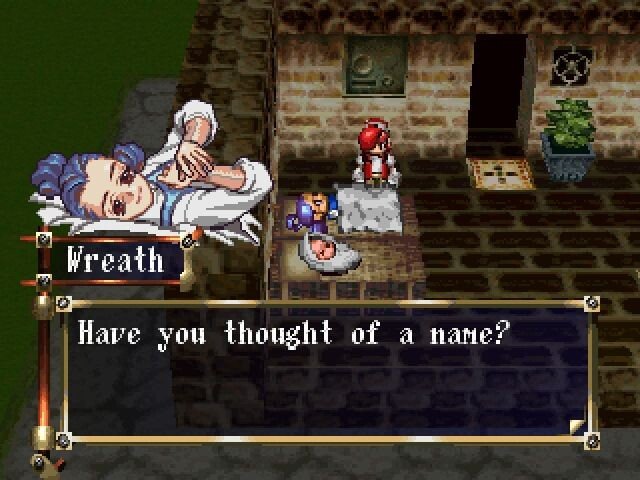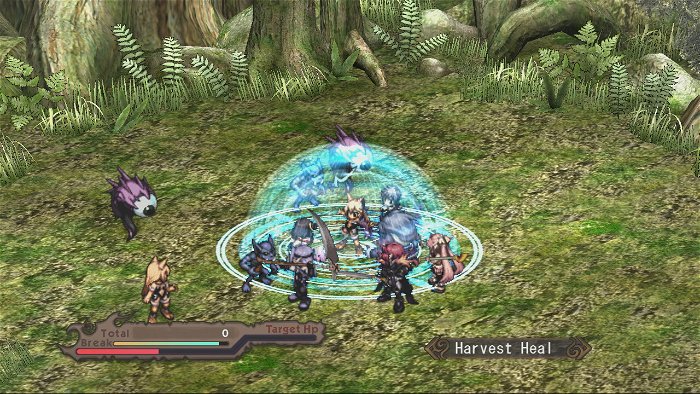I saw a rather interesting lecture on romance in games and the potential of romance-themed games at the Montreal International Game Summit, by Schell Games’ Heidi Macdonald. In it, she discussed the possibilities of “empathic games”, or games driven by emotional, character-based conflicts rather than violence or plot. She praised the Dragon Age series as an example of engaging romance, as well as actual romance-themed games like Silicon Sisters’ Everlove (whose CEO expressed the importance of ’empathetic games’. She cited the proliferation of online dating, and the converging age demographics of romance-novel readers and players as reasons why this is a bold, new frontier of gaming.
Full disclosure: I’m male, and not an expert on real-life romance. As with any editorial, you can take what I say with a grain of salt, and you definitely should. However, I write these because I think there’s an important discussion regarding the place of romance in games, and the place of actual romance games in the game industry and why it’s viable.
MacDonald gave many examples of games that have romance in them, often as a core mechanic. Japan has an entire genre of ‘otome’ games, or romance-themed games where the story is based around developing relationships with the characters (often multiple). She believes this market can take root in the west, and that western companies can make games like this and find a strong market. She qualified with ‘among’ women.

Personally, I saw more men than women in the audience, so the games might not be exclusively appealing to female players.
Many games have romantic subplots, and even romance-based game mechanics are not new at all, and can add fun portions to the gameplay. That said, romance is rarely the primary focus of the plot of games, except in a few exceptions that appeal to relatively niche audiences. Everlove is primarily geared towards casual, female players, and operates similarly to a ‘dating sim’ or visual novel. When we think of games that are entirely about romance (without having some other element to them, such as character action or building a farm), we tend to think about pornographic games. Since adult-themed content isn’t actually inherent to romance, and such games use narrative and mechanics entirely for the sake of that content, they’re not particularly relevant to the discussion of why romance is such a thing. Not every romance game has porn in it, either, so it’s clearly not required.
My earliest exposure to a details romance-based subplot was probably Azure Dreams, an original PlaysSation game by Konami where your character entered a giant monster-filled tower, using the treasure he finds to build the small town at his base. There are seven women in the game you can pursue relationships with, often by learning about their histories and personalities and helping them out with their dreams (helping a dancer become a huge success, or teaching the snobby rich girl not to judge people based on their surface). I can’t exactly vouch for it as an example of realistic characters, since there’s clearly a caricatured element to the game, but it did a decent job of presenting them as detailed individuals with personal goals. That you can build a relationship will ALL of the women in the game at once, however, creates some interesting subtexts regarding power relationships and equality.

I think there’s a fear of that. Macdonald’s presentation included a brief mention of that, but the question of sexism and gender portrayal in games is a current and controversial topic. The industry is only recently getting over the idea that male and female players are not entirely separate, mutually exclusive groups that cannot be appealed to together. But one of the things romantic content in games does is foreground the actual issues of sexism and gender portrayal and open them for discussion. To be perfectly frank, the controversy engages players, and it’s simple enough to intentionally evoke issues deliberately and intelligently in order to bring these issues out. Companies can avoid major faux pas by making a visible effort to be respectful, and Western RPGs have a trend towards allowing players to decide sex and other personal factors (also, sexuality, what with LGBT representation in the industry increasing steadily).
For me, Azure Dreams‘ relationships were quite fun. They gave a sense of life to the town you were building with dungeon treasure, and made it feel populated by people more than NPCs. There was a sense that you were helping these people, listening to their ambitions and dreams, and either helping or hindering them. I ruined my brother’s attempt to diffuse an argument between the main character and the money-loving Fur Gots by telling him to walk away, cementing his ire and making every return to the shop tense and laced with bad blood. And if I can get that much enjoyment out of both building AND destroying a relationship, I think there’s enough market to make a game entirely around that.

I think a lot of the issue falls down to mechanics. It’s often easier to attach romantic elements to a game with a more tangible mechanical system than base the entire game around it, in the same way that it’s difficult to make an engaging game that’s all dialogue and still call it a ‘game’. Still, making relationships be about filling a ‘points’ meter or being a means to gain power (like the Social Links in Persona 3 and 4, which I have not played, but their writing is apparently quite good). There’s a balance to be struck, one that adventure game makers, particularly recent ones like Quantic Dream and Telltale, try to execute. Since the latter’s The Walking Dead was praised for its strong writing and emotional storyline (including a developing romantic undertone that is tragically impacted by the story), the potential is there. Combat doesn’t have to be the primary focus
I think you could build a Western RPG based around romance. In another Japanese example, Record of Agarest War has an entire mechanic based on marriage and one’s descendants. Something akin to Crusader Kings, with its family dynastic lines, but with a focus on the different families and their personalities? Let’s give it a shot, you’ll never find a market if you don’t make product.




